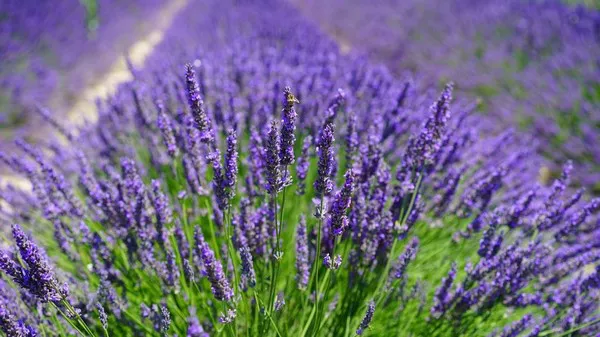Maintaining a beautiful garden requires careful planning and dedicated effort, but the presence of rabbits can quickly turn your floral haven into a feeding ground. Rabbits have a voracious appetite for flowers and plants, posing a significant challenge for gardeners. However, there are several proven methods and strategies that can help you protect your garden and preserve the aesthetic appeal of your outdoor space. In this article, we will explore various techniques to deter rabbits from eating your flowers.
Understanding Rabbit Behavior
Before delving into the methods of keeping rabbits away from your flowers, it’s important to understand their behavior. Rabbits are herbivores and are attracted to gardens because of the availability of fresh vegetation. They are primarily active during the early morning and evening hours, so these are the times when they are most likely to target your flowers. Additionally, rabbits are known for their agility and ability to squeeze through small openings, making it necessary to implement multiple strategies for protection.
1. Fencing and Barriers
One of the most effective ways to prevent rabbits from devouring your flowers is to install barriers around your garden. Sturdy wire mesh or hardware cloth with small openings can be installed around the perimeter of your garden to create a physical barrier that rabbits cannot easily penetrate. The fence should be buried a few inches into the ground to prevent rabbits from burrowing underneath. Additionally, make sure the fence is tall enough—typically around 2 to 3 feet—to prevent rabbits from jumping over.
2. Natural Repellents
Several natural repellents can deter rabbits from entering your garden. The scent of certain plants, such as marigolds, lavender, and mint, is known to be unpleasant to rabbits. Planting these around the perimeter of your garden or interspersing them among your flowers can help deter rabbits. You can also create a homemade spray using a mixture of garlic, hot peppers, and water, which can be sprayed on plants to discourage rabbits from eating them.
3. Commercial Repellents
In addition to natural repellents, there are various commercial repellents available on the market. These repellents typically contain substances that emit odors or tastes that rabbits find unappealing. They come in various forms, including sprays, granules, and pellets. When using commercial repellents, it’s important to follow the manufacturer’s instructions and reapply them as needed, especially after rain.
4. Raised Beds and Containers
Rabbits find it challenging to access plants that are elevated off the ground. Consider planting your flowers in raised beds or containers to keep them out of the reach of rabbits. Raised beds not only provide protection but also improve drainage and soil quality. Containers can be placed on patios or other elevated surfaces, making them less accessible to rabbits.
5. Pruning and Maintenance
Regularly pruning and maintaining your garden can also deter rabbits. Rabbits are more likely to target plants that are overgrown and provide ample hiding spots. By keeping your garden well-maintained and removing any tall weeds or excessive undergrowth, you create a less attractive environment for rabbits.
6. Repellent Plants
Certain plants have natural compounds that rabbits find unappealing. These include daffodils, foxgloves, and hyacinths. Introducing these plants into your garden can help deter rabbits from eating your flowers. However, it’s important to note that some of these plants can be toxic if ingested, so make sure to research their potential impact on other wildlife or pets.
7. Scent Markers
Rabbits rely heavily on their sense of smell to navigate their environment. By strategically placing scent markers around your garden, you can confuse and discourage rabbits from entering. Scent markers can include human hair, dog hair, or predator urine, all of which give off scents that rabbits associate with danger.
8. Eco-Friendly Solutions
While protecting your garden from rabbits is important, it’s equally crucial to choose methods that are environmentally friendly. Avoid using chemicals or traps that may harm rabbits or other wildlife. Opt for natural and humane deterrents that discourage rabbits without causing harm.
Plant Selection and Garden Design
In addition to implementing rabbit deterrents, careful plant selection and garden design can also play a significant role in preventing rabbit damage.
1. Choosing Resistant Plants
When planning your garden, opt for flowers that are less appealing to rabbits. Plants with strong scents, prickly textures, or bitter tastes are often avoided by rabbits. Examples include roses, daffodils, lavender, and snapdragons. Researching rabbit-resistant plants for your region can help you make informed choices.
2. Creating Distractions
Consider incorporating plants that rabbits enjoy into a designated “rabbit-friendly” area. By providing an alternative food source, you can help divert rabbits away from your prized flowers. However, this approach requires ongoing maintenance to ensure that the distraction plants remain attractive to rabbits.
Conclusion
Protecting your garden from rabbits’ appetites requires a combination of strategies, ranging from physical barriers to natural repellents and strategic plant selection. By understanding rabbit behavior and taking proactive measures, you can enjoy a flourishing garden without constant worry about rabbit damage. Remember that creating a balanced and eco-friendly solution is key to maintaining a harmonious relationship with wildlife while preserving the beauty of your outdoor space. With careful planning and consistent effort, you can successfully deter rabbits from eating your flowers and enjoy the fruits of your gardening labor.


